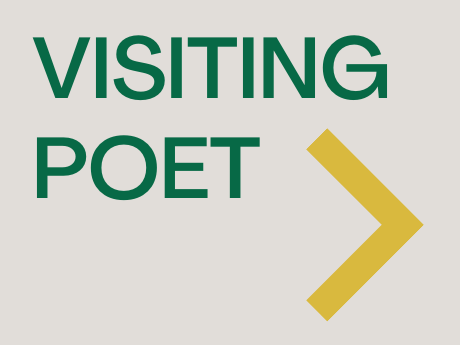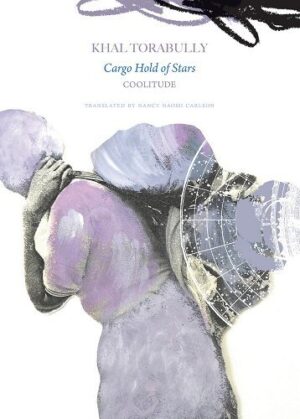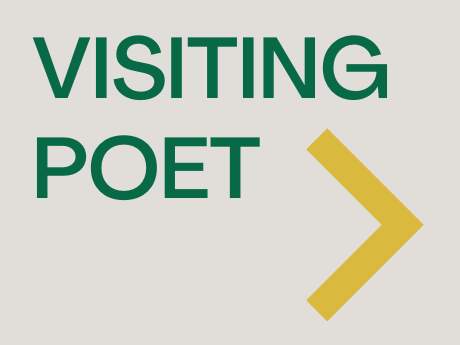Visiting Poet
Visiting Poet: Nancy Naomi Carlson on Khal Torabully

Four Poems by Khal Torabully
Excerpts from Cargo Hold of Stars: Coolitude
[Define me please]
Define me please:
what’s a Coolie?
One with a noose round his neck
denied the deck’s cool lee side?
I am Lascar, Malabar,
Madras tamarind from bazaars,
Telugu with tell-tails for you.
Cruel Marathi mother or Chamar.
Whichever you like, I’m an Indian Black,
guinea pig, from Port Louis to Port-of-Spain
to replace mighty Zanzibar slaves.
For memory, my only langouti,
a loincloth,
my language, purloined by the sea.
If you recognize me, please
call me proxy slave,
strawman or stand-in,
kapok from fields or ocean vertebrae.
But know that my sabre of blood
has uprooted me to the core.
[Malabar]
Malabar, me the spar
me mound of dirt
me of salt, me of flesh:
my worn-out lascar soul
quarter Malay, third malaise
will be fragments
broken cross-beams of sky
body broken
from setting sail.
To be a moutaille
I’ll be undone, over there,
malady of mind
maligned Malayalam,
a lone me will be lost,
me so right, left to rot,
o memory.
[I want to go to the grand bazaar]
I want to go to the grand bazaar
to seek at last the saffron of shadows
o refrain from your refrain
the hoist of spices clears the remains
o refrain from your refrain
for your bodies heaped on the wind:
cries of cumin: cries my journey’s route
cries of thyme: cries my future
cries of coriander corpses awaiting return.
And the bids of roots chased away
my terrified dreams all the way to hell.
[Do you know the tale]
Do you know the tale
of the lonesome man
in the East India Trading Company?
His skin was lit with sparks
salt-pond pores
on a rainy night.
To the pearls of spume
his voice became an almanac
for seasons of exile.
Often this man
returned to the seas
on the dalo of his wound.
Sometimes along streets
of lost waves
he blows out stars
on his china divans.
Often long blue rattan
brands his flesh with algae
from the horizon’s only shipwreck.
To ignite the dawn
of crystal cries
this loner
sells iron stoves
in the paved courtyard of lagoons.
Translated from the French by Nancy Naomi Carlson.
Poems originally appeared in Cargo Hold of Stars: Coolitude (Seagull Books, 2021). Reprinted by permission of Seagull Books.
Nancy Naomi Carlson on Khal Torabully
I first came across Khal Torabully’s work in a bilingual anthology featuring francophone poets from Africa and the Arab world (The Parley Tree, Arc Publications, 2012), edited by Patrick Williamson. I was immediately intrigued by this Mauritian poet who identified himself as “Creole by my rigging, Indian by my mast, European by my spar, Mauritian by my quest, and French by my exile” [my translation] who claimed poetry as his “real mother tongue.”
Born in 1956, Khal is a critically acclaimed poet, essayist, film director, and semiologist, descended from a long line of migrants who settled in Mauritius from India and Malaysia. Indeed, millions of indentured men and women from India, China, and elsewhere passed through the Aapravasi Ghat (immigration depot) in Port Louis, Mauritius, in the years between 1849 to 1923, as a cheap source of labor in Mauritius or other colonies across the Global South after slavery was abolished. The history of indenture is riddled with cruelty, exploitation, and tragedy. Many workers were tricked into indenture and found themselves on the same ships that had once transported slaves. They were subjected to horrific conditions in the cargo holds of these ships as well as on sugar cane plantations.
To honor the legacy of indenture, Khal has coined the term “coolitude” in a way that evokes how Aimé Césaire coined the term “negritude,” re-visioning, re-imagining, and re-defining the derogatory colonial term “coolie,” and imbuing it with dignity and a new cultural identity, both resilient and strong. In cargo holds it was impossible to maintain former caste systems, as the laborers were forced to share the same utensils and dishes, as well as living and sleeping spaces. Everyone below decks, no matter their former status in the social stratification, was entitled to look up and see the stars. In Cargo Hold of Stars: Coolitude, an epic poem divided into three non-chronological sections (“The Book of Métissage”; “The Book of the Journey”; “The Book of Departure”), Khal first introduced his concept of coolitude. The English translation of this book, winner of the 2022 Oxford-Weidenfeld Translation Prize, was described by the judges as “a book where names, religions, languages and bodies combine to form an ever-resounding ode for the absented.”
In the belief that ordinary language was not capable of bringing to life the diverse voices of indenture, Khal has deconstructed French, a colonial language, and created “a new French.” His “poetics of coolitude” or “corallian poetics” is vibrant, playful, and inventive, blending Mauritian Creole, French, English, old French, old Scandinavian, mariners’ language, Hindi, Bhojpuri, Urdu, Arabic, Chinese, and neologisms. In addition, Khal makes generous use of polysemy and homophony. Aditya Bahl, in The Nation, commended Khal’s “anarchic dissonance of sound and rhythm” punctuated by “sprawling white space” leading to “a raucous throng of puns, alliterations, disjunctive rhymes, and neologisms [that] always [renew] the music.” Here are a few bilingual lines centered around the Hindi word “varangue” (meaning “veranda”) that particularly demonstrate the music created in the French text through alliteration and assonance:
Sur la varangue ma langue cherche une mangue
petite lune sur mât de hune me harangue :
- Raconte ma traversée coulissante
O coolie palan poulie
dis lumière pour vérité…
[On the varangue my tongue seeks a mango
and I’m harangued by a small topmast moon:
“Tell the tale of my curried crossing.”
O capstan pulley coolie
say light for truth…]
The playfulness and sometimes whimsical tone of the language underscores the serious nature of Khal’s themes. Even the French word “cale” (cargo hold) is pronounced the same way as Khal’s name. In his second collection of poems focused on coolitude (Coral Flesh), Khal further develops the metaphor of coral to describe the diversity of “coolitude,” as well as his plural origins and mosaic self. In choosing the metaphor of coral, Khal wanted to pay homage to Césaire’s choice of a rock for his metaphor of negritude, but unlike Césaire, he also wanted something both soft and hard, a living organism that both changes and is changed by the systems around it in a symbiotic relationship. In “[Parole aux essaims],” Khal describes this transformation, speaking in the voice of indentured workers: “…no longer Hindu-human from Calcutta / but coral flesh from the Antilles / and the Americas…”
Although Khal and I have never met, we have given readings on Zoom, the next best thing. One of the most memorable was a presentation at Bennington College earlier this year. The highlight for me was to hear Khal read my translations in English in a way I could not replicate, adding a basso ostinato element to his rendering of the lines.

Khal Torabully is a prize-winning Franco-Mauritian poet, theorist, and writer who has authored more than 26 books and elaborated a humanism of diversity and the coral poetics in his exploration of indenture and migrations. He has collaborated with UNESCO on the Silk Routes and directed a film on the Maritime Spice and Silk Routes, which won the Golden Award at the Media Film Festival of Cairo, 2000. He is an honorary patron of the Ameena Gafoor Institute of Indenture, UK, and has just published a debut novel entitled Grenade 1492: L’Oeuf ou la Colombe? (Granada 1492: The Egg or the Dove?).
Nancy Naomi Carlson is a poet and translator whose translation of Khal Torabully’s Cargo Hold of Stars: Coolitude (Seagull, 2021) won the Oxford-Weidenfeld Translation Prize and was shortlisted for the Sarah Maguire Prize in Poetry by the Poetry Translation Centre in London. Decorated with the French Academic Palms and twice awarded NEA literature translation grants, she’s the author of An Infusion of Violets (Seagull Books, 2019), named “New & Noteworthy” by The New York Times. She’s the Translations Editor for On the Seawall.


